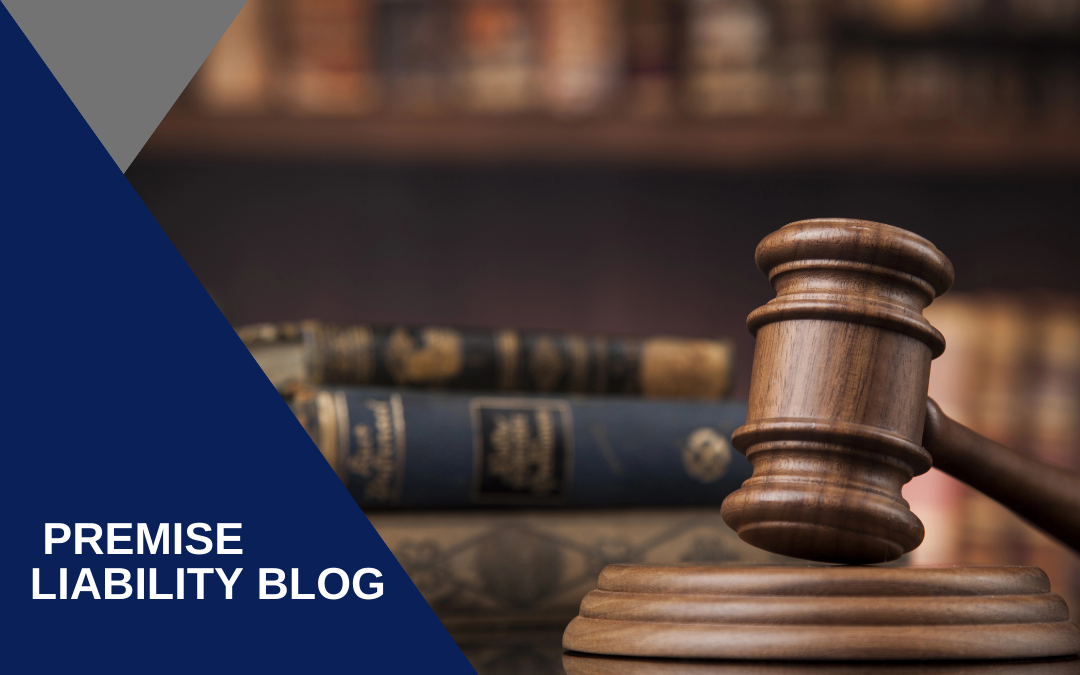
Frequently Asked Questions (FAQs) About Premise Liability
What is Premises Liability?
Premises liability refers to the legal responsibility of property owners to maintain safe conditions for visitors on their property. If an injury occurs due to unsafe conditions, the property owner may be held liable. Common incidents involve slip and fall accidents, inadequate lighting, poorly maintained walkways, or failure to address hazards like wet floors or uneven surfaces. Property owners must take reasonable steps to prevent accidents and ensure the safety of those who enter the premises, whether they are invited or legally allowed to be there.
Who is Responsible in a Premises Liability Case?
In a premises liability case, the property owner or the party responsible for maintaining the property is typically held liable for injuries caused by hazardous conditions. This can include homeowners, business owners, landlords, or tenants, depending on the circumstances. The key factor is whether the responsible party failed to take reasonable steps to prevent or address dangerous conditions. In cases involving businesses, the property owner or manager may be liable if they were negligent in maintaining the premises.
What Are Common Causes of Premises Liability Accidents?
Common causes of premises liability accidents include slip and falls due to wet floors, uneven pavement, or poor lighting; falls from stairs or ladders that are improperly maintained; dog bites or attacks; inadequate security leading to assaults or criminal activity; and injuries from defective property features like broken handrails. These accidents can happen in various locations, including homes, shopping centers, workplaces, and public spaces. Identifying the cause of the injury is crucial to determining liability.
What Do I Need to Prove in a Premises Liability Case?
To succeed in a premises liability case, you must prove that the property owner or responsible party was negligent. This involves showing that they knew or should have known about a hazardous condition, failed to fix it, and that this negligence caused your injury. Additionally, you need to demonstrate that you were on the property legally (as an invitee, licensee, or even a trespasser, depending on the case). Evidence, such as photographs of the hazard, medical records, and witness testimony, is often key in proving negligence.
What Are the Different Types of Visitors in Premises Liability?
In premises liability law, visitors are classified into three categories: invitees, licensees, and trespassers. Invitees are individuals who enter a property for business purposes, such as customers in a store, and are owed the highest level of care. Licensees are individuals who enter for social purposes, like guests in a home, and are owed a moderate duty of care. Trespassers are individuals who enter without permission, and property owners generally owe them a minimal duty, usually just to avoid intentional harm.
How Long Do I Have to File a Premises Liability Claim?
The time limit to file a premises liability claim depends on the state in which the injury occurred and is governed by the statute of limitations. Typically, this period ranges from 1 to 3 years from the date of the injury. If you fail to file within the statutory period, your case may be dismissed, and you may lose your right to compensation. It is crucial to consult an attorney as soon as possible to ensure timely filing and preserve your legal options.
Can I File a Premises Liability Claim for a Slip and Fall?
Yes, slip and fall accidents are one of the most common types of premises liability cases. To file a claim, you must demonstrate that the property owner or responsible party was negligent in maintaining the premises. This could involve hazards such as wet floors, loose tiles, or poorly lit areas. It’s important to document the scene of the accident, gather evidence, and seek medical attention promptly to strengthen your claim. An attorney can help evaluate whether you have a valid case.
What Compensation Can I Receive in a Premises Liability Case?
In a premises liability case, you may be entitled to compensation for medical bills, lost wages, pain and suffering, and any permanent disability or disfigurement resulting from the injury. In some cases, punitive damages may also be awarded if the property owner’s actions were particularly reckless or intentional. The amount of compensation varies based on the severity of the injury, the extent of negligence, and the impact on your life. An attorney can help determine the appropriate compensation you may be entitled to.
What Defenses Do Property Owners Use in Premises Liability Cases?
Property owners may use several defenses in premises liability cases, including claiming that the hazardous condition was open and obvious, meaning the injured person should have noticed it. They may also argue that the injured party was at fault (contributory negligence) or that the property was not in a state of disrepair at the time of the accident. Additionally, some property owners may assert that the injury occurred because the visitor was trespassing or did not have permission to be on the property.
How Do I Prove Negligence in a Premises Liability Case?
Proving negligence in a premises liability case requires showing that the property owner failed to meet their duty of care. You must demonstrate that the owner either caused the hazardous condition, knew about it, or should have known about it, and did not take reasonable steps to fix it. Evidence such as maintenance records, photos of the scene, witness testimony, and expert opinions can all help establish negligence. An experienced premises liability attorney can guide you through the process and ensure all necessary evidence is gathered.
These articles are for general informational purposes only and are not legal advice. Contact us today to discuss your specific situation.
